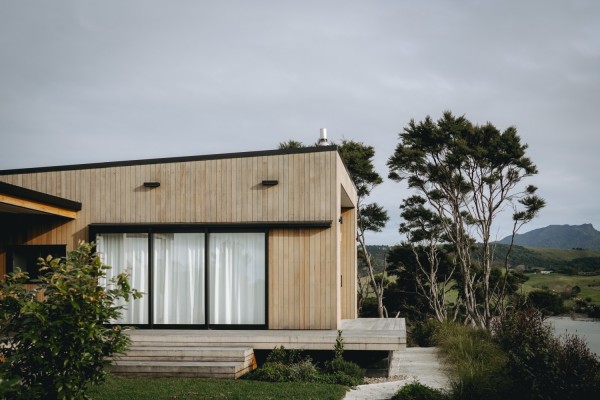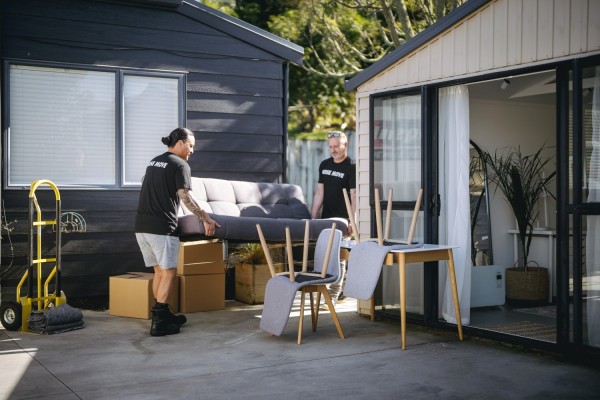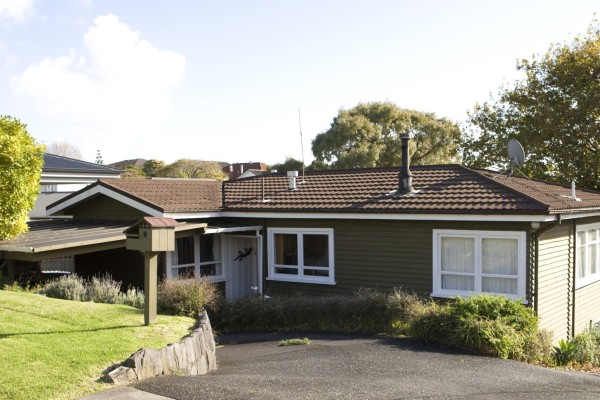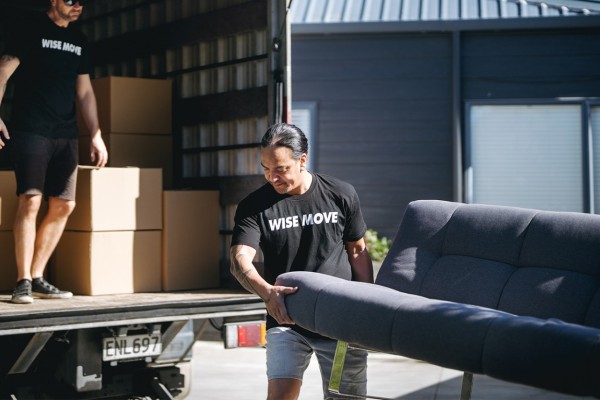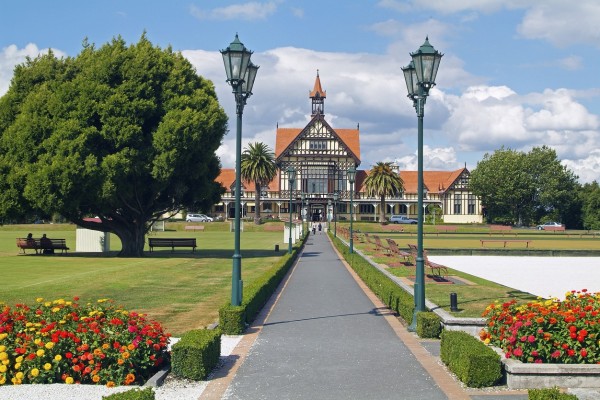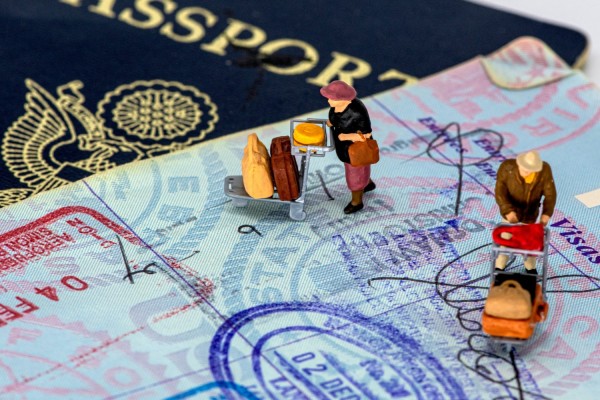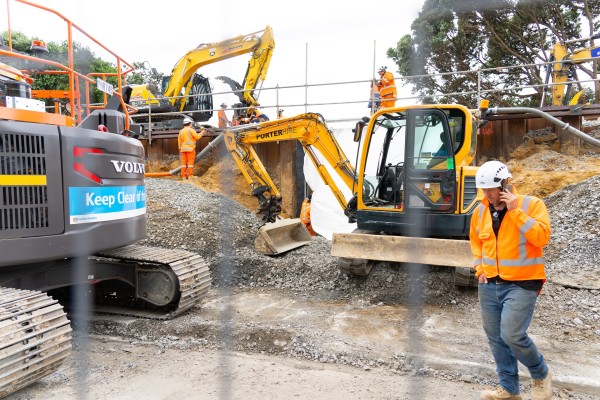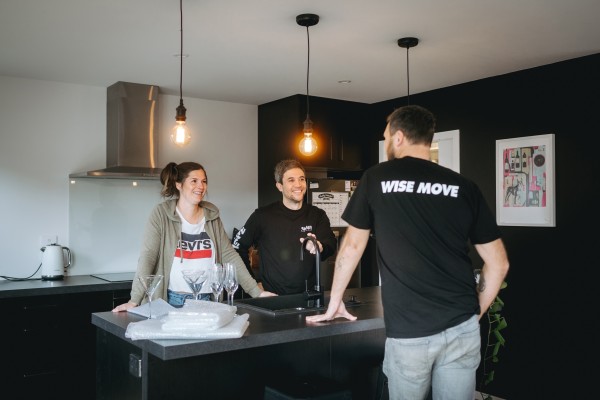New Zealand home buying guide: Everything you need to know about researching buying and settling on a home
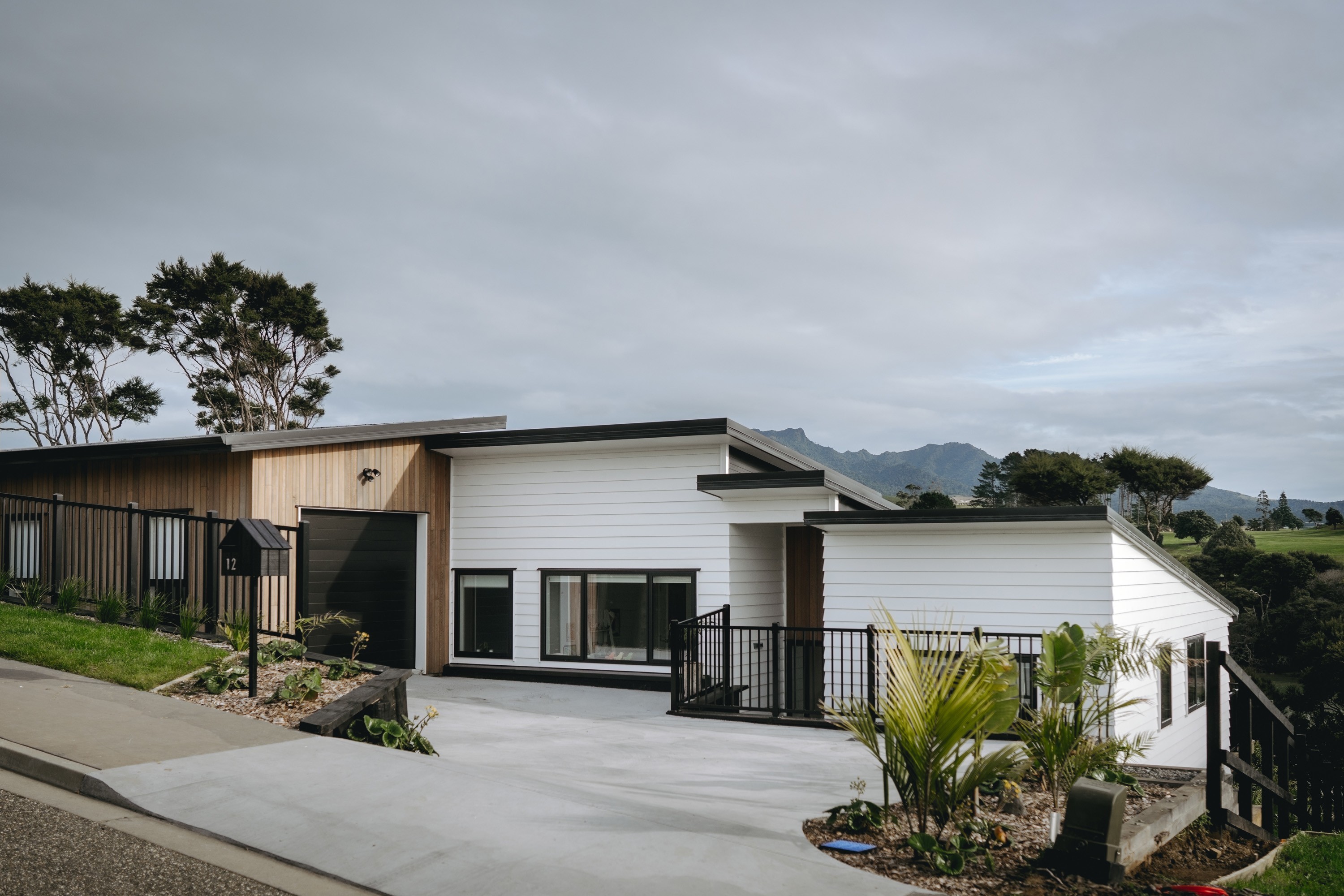
Buying property is one of the biggest moments in your life. Not only is it likely the largest financial transaction you’ll ever make, but the process can also be complex and, at times, confusing.
Familiarising yourself with the home-buying process can reduce stress and ensure you know what to expect each step of the way. Read on for our guide to understanding the home-buying process in New Zealand. We’ve broken it down into five easy-to-follow steps.
Step 1: Thinking about buying
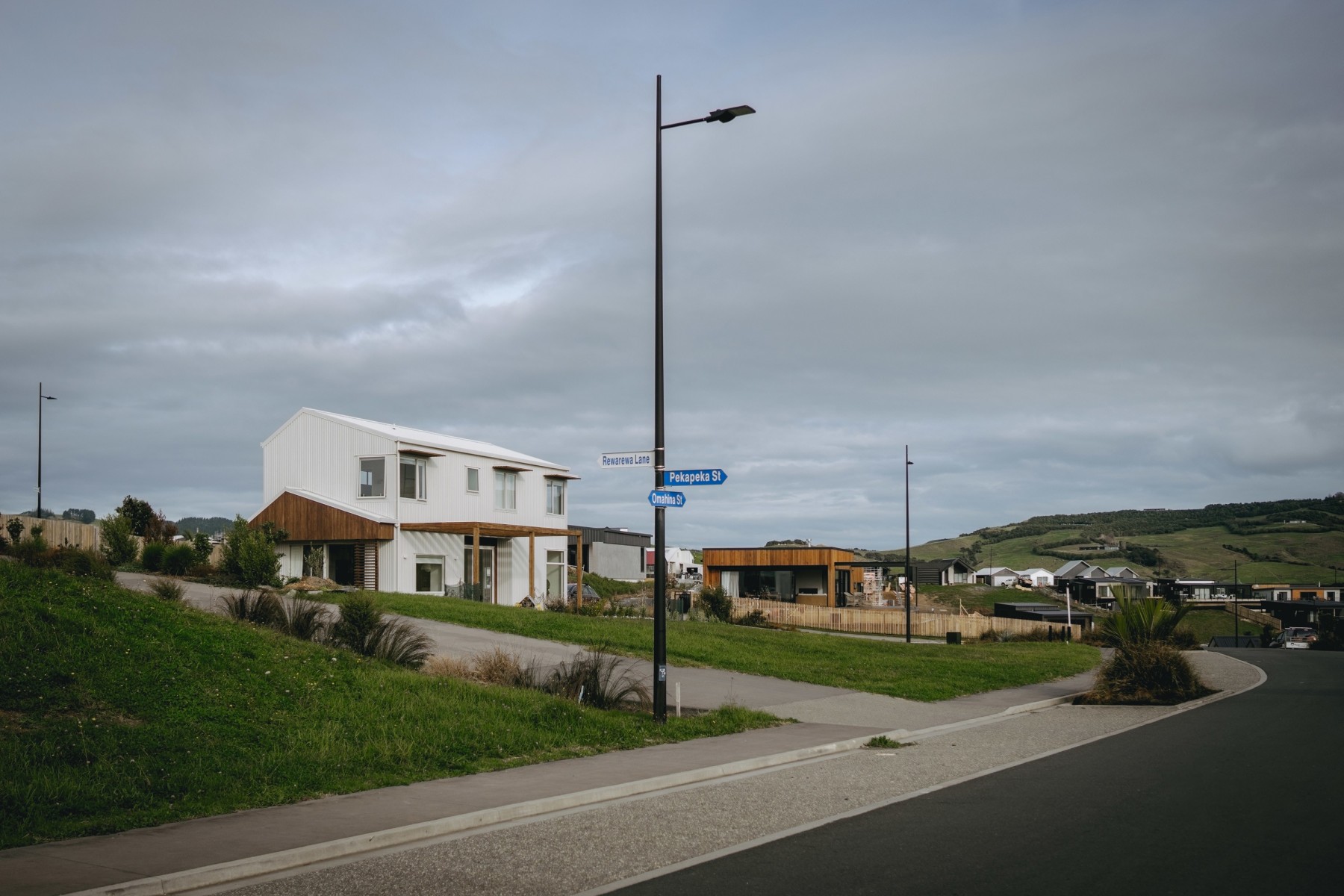
New Zealand’s housing market has been hot for the past few years and is finally beginning to slow. House prices are decreasing, and there’s less demand for housing than during the pandemic. Even so, the process of buying a property takes a long time.
If you’re considering buying a house in New Zealand, prepare for a long journey. Understanding the property market and setting clear and realistic goals regarding ownership will help you stay on track and avoid burnout or disappointment.
Think about your goals
The house-buying process should happen 3-5 years before you want to buy a home. Start thinking about where you’d like to live, what type of property you want, and how you’ll save for a deposit.
It can take up to 11 years to save for a housing deposit in New Zealand. With such a big deposit required, it’s never too early to start saving. If you won’t have enough to put down a 20% deposit on a home, start researching which types of grants you are eligible for well in advance.
Think about why you are buying
Buying an apartment, family home, or rural property is a big financial difference. A clear idea of what your future will look like will help. Starting a family, owning pets or moving to a better school zone can influence what type of home you should buy.
If you are an investor, determine what tenant you want to attract. While buying a home in a student area might guarantee good returns and constant income, you may have a lot of maintenance to keep up with. Buying in a quieter area might reduce your income but allow you to rent out to a long-term tenant at a lower cost.
Think about whether buying property makes sense right now
Buying property in New Zealand has always been touted as the ‘Kiwi dream’. However, buying isn’t always a good financial decision, at least not in the short term. With mortgage rates high, it could pay to continue renting for the next 2-3 years. Waiting until you are financially ready to buy a home is always better than rushing into a purchase you can’t afford.
Even if interest rates were to drop, consider whether you can service a mortgage at 6-7% interest. Buying too much home can leave you house-rich but cash-poor. Consider what type of life you’d like to lead and whether owning a property allows you to live it fully.
Think about your deposit
Saving for a deposit is the first step towards buying a house. Most lenders ask for a 20% deposit. However, there are options for putting down a smaller deposit in New Zealand.
If you want to put down a 20% deposit, you’ll need to save $20,000 for every $100,000 of home value. Naturally, this process can take a long time. Thinking about your finances early will ensure you have a solid plan for getting on the property ladder. Create a budget and savings plan to help you reach your goal. It can pay to cut this big number into smaller, more achievable goals. For example, set milestones of $5,000 increments and celebrate these when you reach them.
You’ll need a mortgage to cover 80% of your home. Use a mortgage calculator to get a rough idea of how much you’ll need to borrow. You can also play around with interest rates to see what the repayments on your loan may be. It’s important that you can repay your loan once you take it out.
Think about getting pre-approval
The pre-approval process is helpful for first-home buyers and other potential homeowners. Pre-approval can help to speed up the home-buying process. It’s essentially the bank's saying you will be approved to buy a home within a certain price range.
Once you find a home on which you’d like to place an offer, having conditional approval from the bank will help you move faster. In some cases, you will need pre-approval even to put in an offer. This is the case for bidding on a home that sells via auction. Preapproval helps the seller and the estate agent feel more confident that your offer is serious.
We recommend going to a mortgage broker for pre-approval. They can shop around all banks and lenders on your behalf and find you the best offer.
Think about KiwiSaver or First Home Grants
If you have KiwiSaver, it could be a good idea to withdraw some of your retirement funds and put it towards a deposit on a house. If you have contributed to KiwiSaver for three years, you may be eligible for withdrawal or a KiwiSaver First Home Grant.
You’ll need to apply for both the grant and your KiwiSaver withdrawal, so make sure you leave enough time to do so. While it’s a good idea to use your KiwiSaver for a deposit, experts recommend leaving some cash in your retirement account. KiwiSaver works by accumulating compound interest over time.
The older you are, the less time your retirement fund has to earn money. If you are in your mid-thirties or older, it’s better to withdraw the minimum amount you need rather than withdrawing all of your savings for a home deposit.
Think about how you’ll pay for additional costs
Buying a home comes with more costs than just the price of your house. You’ll also need to budget for a range of required services to ensure the dwelling is safe and everything is above board. Budget for:
-
Lawyer and conveyancing fees
-
Bridging finance costs
-
Building inspection reports
-
LIMs
-
Moving costs
-
Maintenance after you move in
-
Insurance
-
Body corporate
Step 2: Searching for the right property
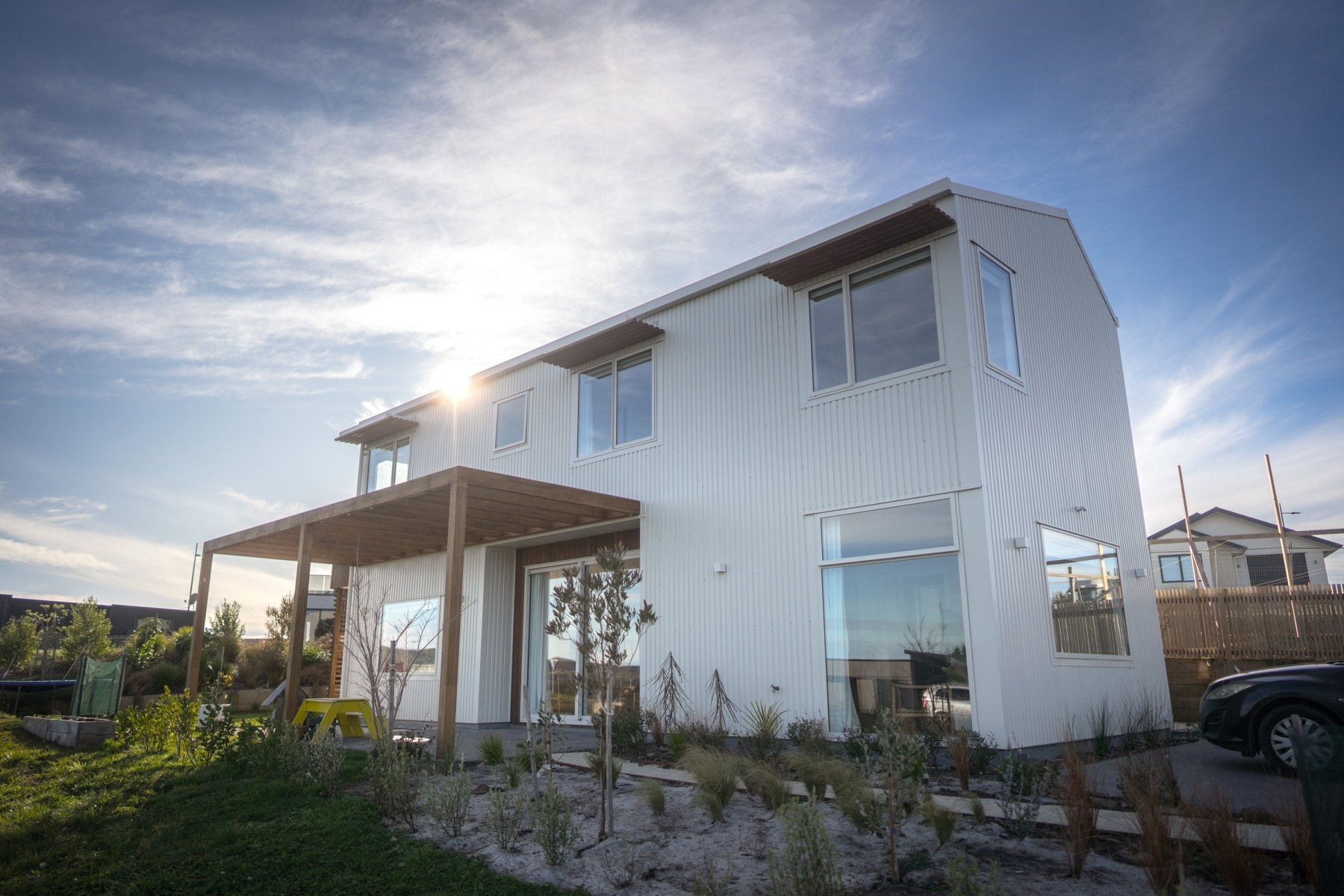
Before buying a home, you must consider all your property options. Many people look at buying a stand-alone home, but there are many types of properties that might fit your lifestyle better that you should consider.
Buying a stand-alone home
A stand-alone home is the most common type of home found in New Zealand. This type of house is a single-story, detached home on its own piece of land and is a common option for first-home buyers. There are some things you should consider before you buy a stand-alone house:
-
Stand-alone homes come with sections that may provide space for you to expand
-
They are separated physically from your neighbours so can be quieter
-
Are usually freehold, so you will own the land and anything you build on it
-
Land comes with maintenance, gardening and landscaping, which costs time and money
-
Older stand-alone homes may come with unforeseen maintenance
-
You should check with your council if there are any restrictions to making changes to the property
Buying an apartment or townhouse
Apartments or townhouses are often good for people looking to downsize, first-home buyers or those looking for a lifestyle change. There are some things you should consider before buying an apartment, such as:
-
Apartments are often cheaper than stand-alone homes and are often located in the central city or close to amenities and shopping centres.
-
Living close to other people does come with challenges. You’ll share walls and may have other tenants living above or below you.
-
Find out whether the apartment you are considering buying has long or short-term rentals or Airbnb operating. As short-term tenants can change a lot, they may not be the best neighbours.
-
Check to see if your apartment comes with parking and extra storage located outside your apartment.
-
Ask about the body corporate meetings and long-term planning to maintain your building. If you are paying body corporate fees, it’s a good idea to know what they will be used for.
-
Ask questions about weather tightness, ongoing maintenance, owner levies, the insurance covering the building and how external elements like the window washing are done.
Buying land
Buying a section of land to build on is a great way to get exactly what you want in a home. Before you buy, be aware that you’ll unlikely get a mortgage on just a piece of land in New Zealand. Instead, a bank will want to see your plans for construction and loan based on your plans to build. This means you need to have your plans for your house underway when you find the land you’re after or buy a section in a subdivision that has plans already developed.
-
Have an idea of what type of home you want to build before you commit to a piece of land.
-
Check the building covenants so your build doesn’t use any materials or colours that fall short of the area restrictions.
-
Check if any building plans have already been submitted to the council and what the zoning is for the area.
-
Check the cost of connecting services like sewerage and power if those aren’t in place.
-
Consider the cost of earthworks. If you are buying on a sloped section, engineering and earth-moving costs may be considered.
Buying from plans
Developers often sell units off the plan before construction begins on an apartment or townhouse complex. Buying from the plans means much of the hard work is already done. All you have to do is pay a deposit and agree to purchase the house once it's built. Before you buy off the plan, consider:
-
Buying off the plans is easier than building your own home; however, you have far less flexibility when it comes to selecting finishes, materials and additional features.
-
If the market shifts between when you put down your deposit and when you move into your home, you may be committed to paying more than the property is worth.
-
You rely on the developer and construction firm, so it’s important to choose wisely. Avoid contracts with sunset clauses which allow a contract to be cancelled after a certain date.
-
Visit a show home to make sure you’re happy with the final result. You’ll have limited ability to personalise your home.
-
Switching to a flexible rental contract so you can move whenever your home is ready. With staff and material shortages, there’s a possibility your home may not be finished on time.
-
Factor in interest rate changes when you put down your deposit. Your bank won’t give you a mortgage until the home is built, so you’ll need to make sure you can pay the mortgage if rates increase over the next 12-18 months. Otherwise, your mortgage may not get approved.
-
Find out whether your complex has body corporate fees attached.
-
Find out whether the contractor can change the layout, fittings, or design without your consent. This should be written into the contract.
Buying a mortgagee sale property
Mortgagee sales happen when a property owner can’t meet their financial obligations. The bank may then sell the property to recoup some of the funds. Mortgagee sales can be risky, but as an owner there’s a chance you can buy a house at a reduced price. Before buying a mortgagee sale property consider:
-
The owner may be reluctant to sell and may be still living at the house while it’s for sale. You won’t always be able to view the property and the seller may make things more difficult for a buyer to purchase it.
-
The mortgagee doesn’t have to guarantee the house will be vacated by settlement. You may have to arrange the removal of them from the property.
-
The mortgagee doesn’t have to guarantee the state of the chattels of if they are even offered with the house. They don’t have to provide warranties for building consents or codes for work that was previously completed.
-
If the owner repaid the mortgage owed, the property could be removed from the market.
-
You may have to insure the property before settlement day.
Mortgagee sales are risky, and there are a lot of things that can go wrong. However, these homes are usually listed at a reduced price. If you’re okay with taking a risk and dealing with uncertainty a mortgagee sale could save you a lot of money on a home. Just make sure you have a lawyer or conveyancer that can review any documents or help you navigate the process should anything go wrong.
Step 3: Researching your ideal home
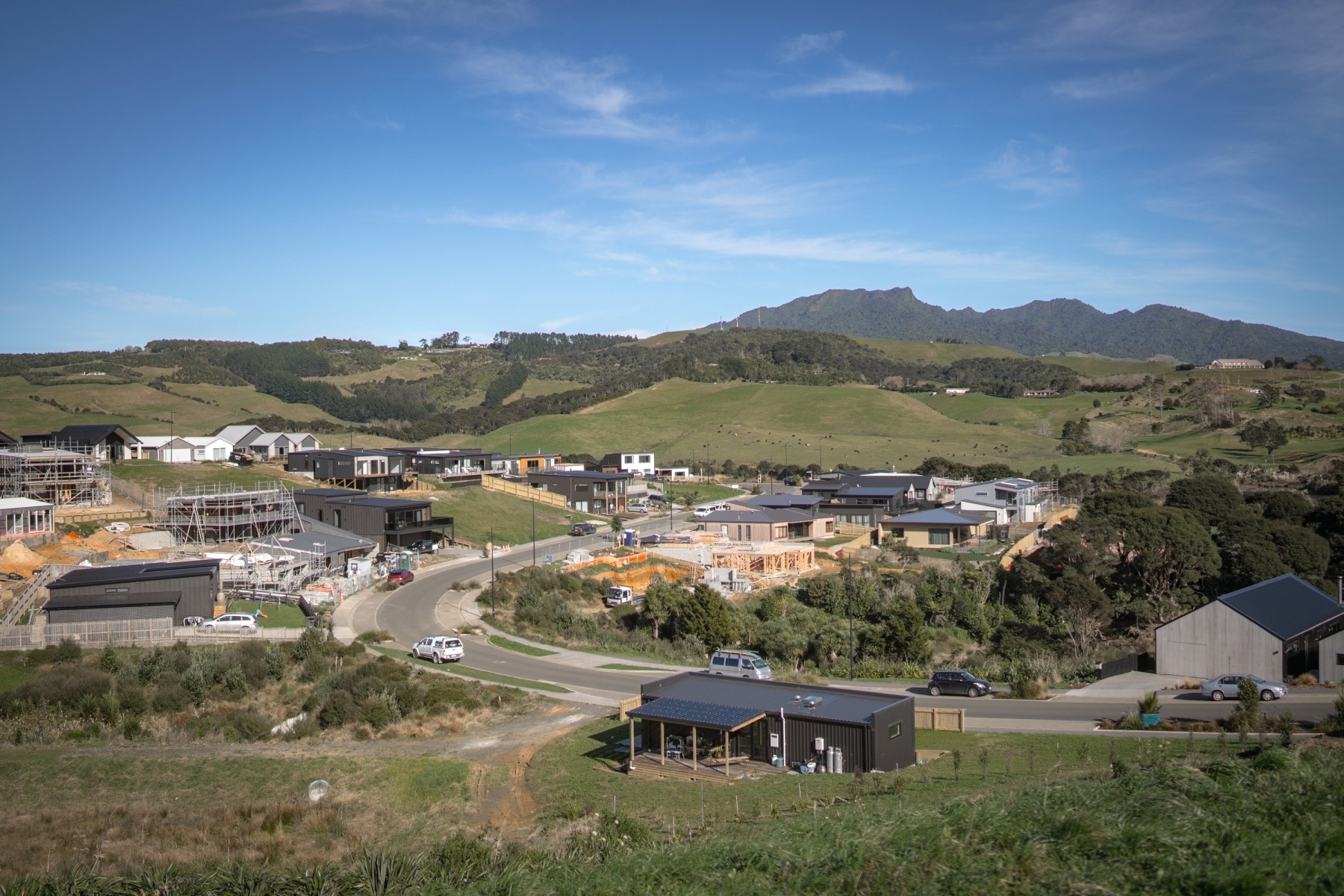
So, you think you’ve found your ideal home. Before you put an offer in, it’s important to do your research on the house or apartment you would like to buy. At this stage, you’ll want to gather as many documents as possible about your ideal home. Official documents can help you understand what work has been done on the property, what work may need to be done in future and ultimately, whether or not your home is financially viable.
Learn about your neighbourhood
It’s not just your physical home that holds value. Your neighbourhood will also impact house prices in the area you want to buy. Once you’ve found the property you want to purchase, spend some time checking out the neighbourhood.
Talk to the neighbours and make sure you’re happy with who you may be living next to. Consider if you are comfortable living next to a block of flats, retirement home, student housing etc as your neighbours can impact your living situation.
Visit the neighbourhoods at different times of day and the weekend. This will give you a good idea of what the traffic is like and what type of activity goes on during the day. You may want a quieter or more bustling neighbourhood.
Ask the council about any zoning changes or new developments nearby. It always pays to be prepared for change.
Check off local amenities against your neighbourhood ‘wish list’. Do you need good access to public transport, local shops, schools or easy on-street parking? Make sure your home ticks the most important amenities on your list.
Learn about the property
It’s time to find out as much as you can about the property you would like to buy. Some areas that you should always check include:
-
The roof - check what material it is made out of and what maintenance it requires
-
Piles - check under the house to see if it has piles and what type of condition they are in
-
Retaining walls - these are expensive to repair. Check any structural walls when buying
-
Wiring - look for any signs of poor wiring e.g flickering lights, and sockets that don’t work
-
Pipes - check water pipes as some have shorter lifespans depending on their material
-
Fences - check that all fences are in good condition or that you know the cost of a replacement
-
Drainage - Check out the drainage on any sloping parts of the property including the driveway
Before buying a property always get a property report and hire a property inspector to go through your property. Don’t rely on the property report the seller offers or get a friend or family member to walk through with you. Property inspections are an added expense but can save you thousands of dollars if you need to repair something at a later date.
What to check for townhouses and apartments
If you are buying a unit or apartment, you can pay for a pre-property inspection on your unit, but it’s often very expensive to have an entire complex inspected. As most units and apartments charge a body corporate fee, it’s important to have an understanding of any current and future work.
Ask to see the long-term maintenance plan (LTMP) for the complex so that you can see what works are planned for the next few years. You should also ask to see the minutes from recent Body Corporate meetings. Additionally, you should ask what major maintenance is planned and whether there are already funds to complete this work.
LTMPs are usually for a maximum of 10 years and usually only cover major expenses.
Many body corporates opt out of having long-term maintenance plans and instead, discuss issues at regular meetings. If you are looking at buying a unit or apartment, ask how many units are owner-occupied versus landlord-owned. Landlords tend to want to avoid non-urgent maintenance to keep their costs low.
Understand the impact of natural hazards
New Zealand is prone to many types of natural disasters. Make sure you understand the risks to your property in the event of an earthquake or natural disaster. Hazards you should consider include:
-
Flooding
-
Earthquakes
-
Fire
-
Tsunami
-
Volcanic eruptions
-
Landslips
A building and LIM report will tell you if your potential home is at risk for many natural disasters and whether it’s earthquake strengthened to modern standards. You can also check to see if the home has been the subject of an EQC claim before you buy. A conveyancer can help identify any potential hazards to your home.
Step 4: Putting in an offer on your home

Great news! Your ideal home is in good condition. Now it’s time to put an offer on your home. You’ll need to confirm your finances and make sure you understand what the sale and purchase agreement is asking of you before you sign.
Confirming your finances
In New Zealand, most people get pre-approved with a bank loan before they search for a property. If you have arranged a conditional pre-approved loan, you will need to confirm the loan before your offer goes conditional.
Getting conditional pre-approval speeds up the process of buying a home and means you know exactly how much you can offer on a home. Even with pre-approval, most banks require information on your chosen property before they will confirm the loan. They may ask for
-
A copy of the signed purchase agreement
-
A property valuation report
-
A LIM report
-
Proof of property insurance
Understanding the sale and purchase agreement
The sale and purchase agreement is a legally binding contract between buyer and seller. Before you sign it, make sure you know what you are agreeing to.
Your purchase agreement will lay out all the details of the sale, including the terms and conditions. This includes any chattels that come with the property, whether the sale is conditional on the buyer selling their home first, and the date of settlement.
Sale and purchase agreements will differ depending on what real estate agent or agency the seller uses. It’s important that you get a lawyer or conveyancer to read over your agreement before you sign. They can highlight any issues you may need to be aware of before you agree to the terms.
The sale and purchase agreement should include:
-
The names of the buying and selling parties
-
The property’s address
-
The property title (leasehold, freehold)
-
The agreed price to buy the property
-
The price of the deposit
-
The chattels being sold with the property
-
Any specific conditions (e.g sale is conditional on the buyer selling their home)
-
The settlement date
-
How many working days you have to fulfil the conditions
-
The interest rate on any overdue payments
Step 5: Settling and move-in day
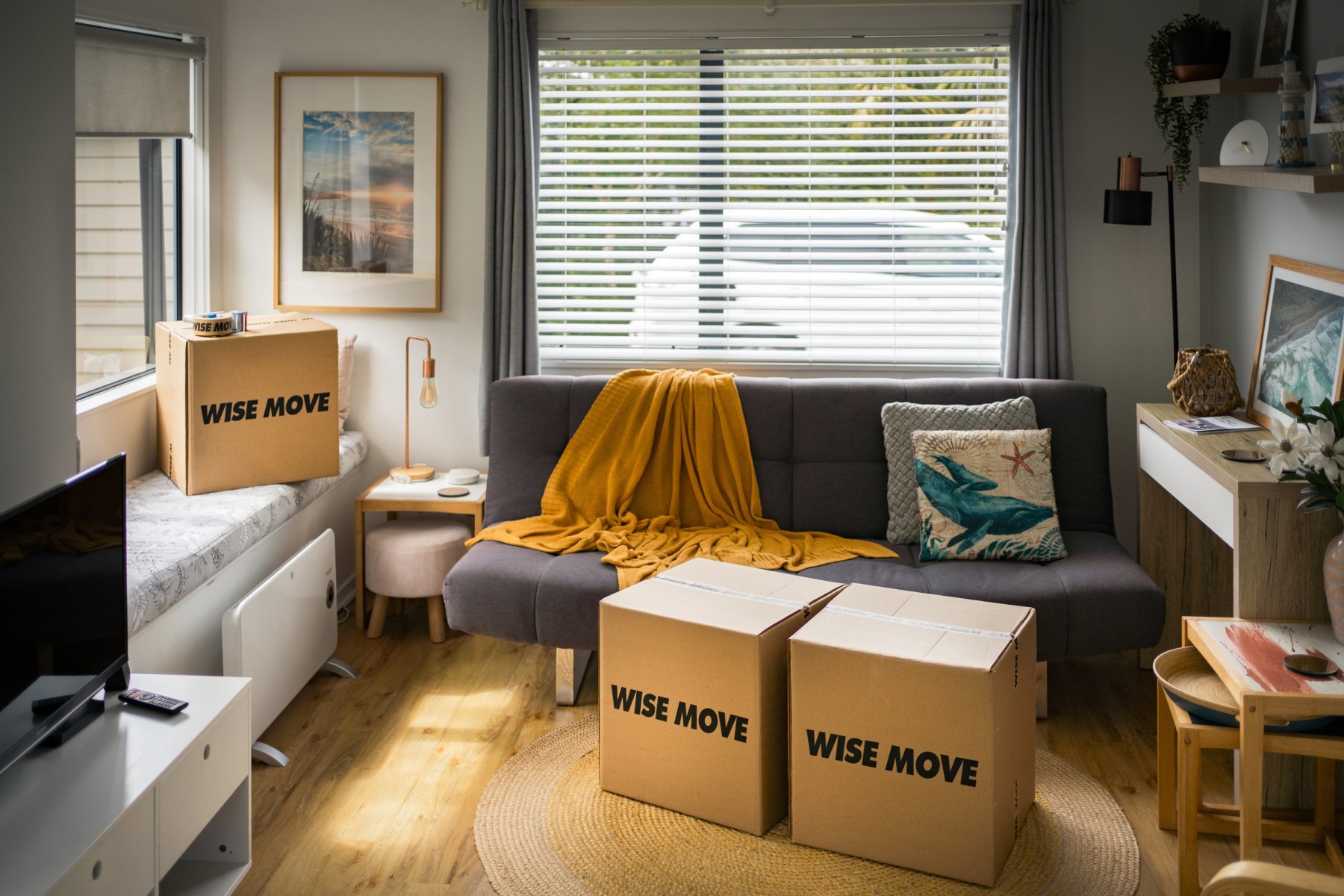
After you’ve made an offer on a home, there’s still the process of settlement before you can move in. There are a number of things you can do to make sure your settlement day runs smoothly.
Pre-settlement inspection
A pre-settlement inspection is your chance to inspect the home and chattels and make sure everything is in the same condition as when you signed the purchase agreement. There are usually a few weeks between when you first inspected the property and settlement day. It’s important to note that the pre-settlement inspection is not an opportunity to look for problems that existed when you signed the agreement. Instead, you should be checking that the home and chattels look the same as they did at your initial house inspection.
The pre-settlement inspection should take place at least two days before settlement day. This gives the seller time to address any issues. If the property is rented to a tenant, the landlord may need additional time to notify the tenants of upcoming maintenance.
Check that the property is clean and ready for you to move in. It’s a good idea to ask for the property to be commercially cleaned in the sale and purchase agreement.
What to check at the pre-settlement inspection
Take a copy of the sale and purchase agreement with you so that you have something to reference during your pre-settlement inspection. Check that:
-
The property is in the same condition as the day you signed the purchase agreement
-
Make sure all the chattels listed are in good working order
-
Check any fixtures, such as lights and curtains
-
Check for property damage since the sale and purchase agreement was signed, especially if there has been an earthquake, surface flooding, heavy rains etc.
-
Check that any maintenance requests are done and to the right standards
-
Check that rubbish and any belongings are all removed
-
Keys, remotes and security codes are accounted for and will be available on settlement day
What to do if you find any issues during pre-settlement
Hopefully, your pre-settlement inspection goes well, and all chattels and maintenance are accounted for. If you do find any problems or damage during your pre-settlement inspection that wasn’t there when you signed the purchase agreement, contact your lawyer or conveyancer straight away. They will negotiate with the seller’s lawyer or conveyancer to fix any issues.
They may fix any damage immediately or ask for the cost of fixing the damage to be deducted from the final purchase price. Having the final inspection a few days before the settlement date gives the selling party time to fix any issues.
What to do on settlement day
On settlement day, the property along with the balance of the purchase, is transferred to the buyer. A lot of the settlement is managed by your lawyer or conveyancer, especially if you signed your documentation earlier. Still, there are some things you should plan for on settlement day.
On settlement day, your lawyer or conveyancer will pay the purchase price to the selling party and ensure the property title is transferred to you. Once this happens, you can collect the keys from the seller’s party.
What to do if things go wrong
Some settlements rely on one party selling or buying a home before the settlement can occur. Even if the sale goes through you may experience delays to the seller moving out, delays getting the keys or damage that occurs after the settlement has gone through but before you’ve moved in. Your lawyer or conveyancer should be the first person you call when things go wrong. They can negotiate with the seller to try and reach a satisfactory conclusion.
It’s a good idea to leave a few days between settlement and move-in days. Things don’t always go to plan on settlement day, and any delays can have a flow-on effect. Schedule your moving day for one or two days after your settlement day.
What do our customers say?


For every (wise)move
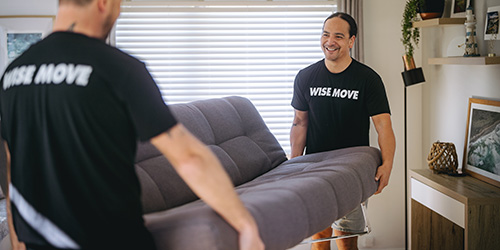






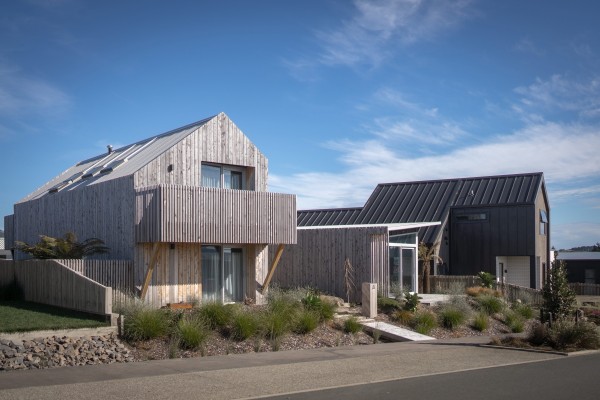
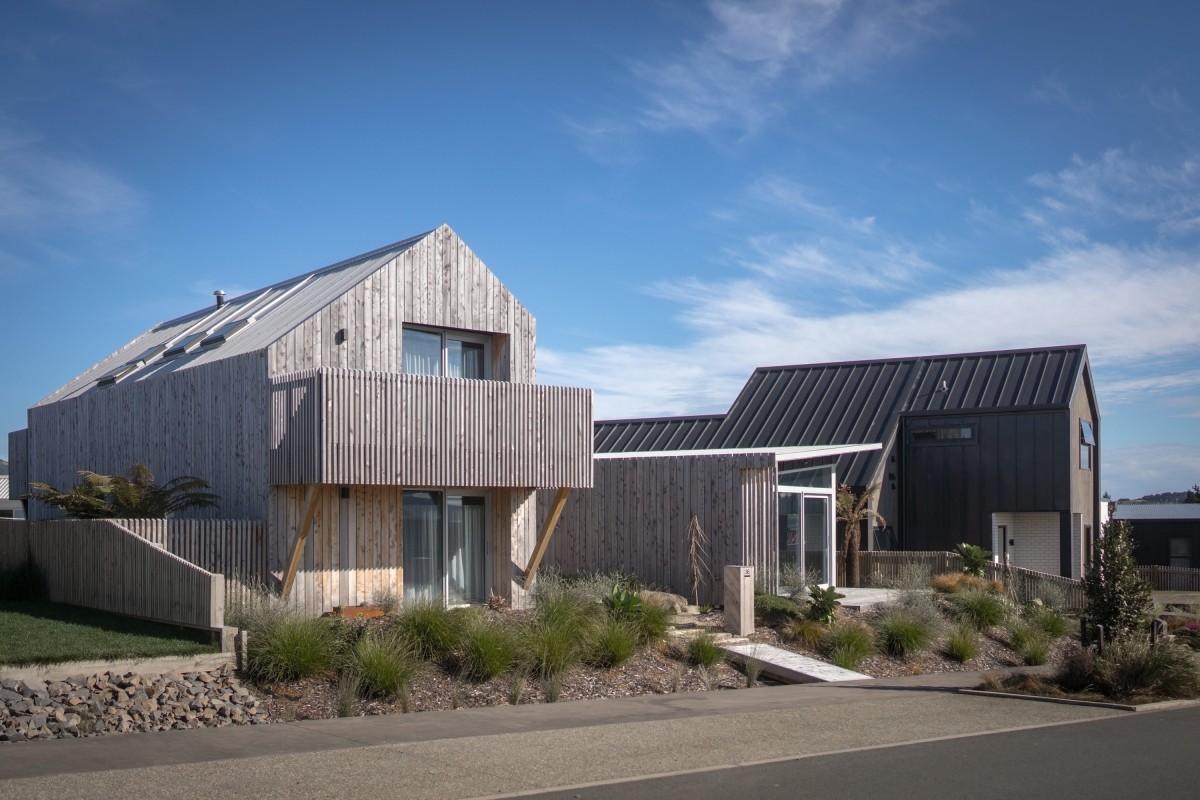
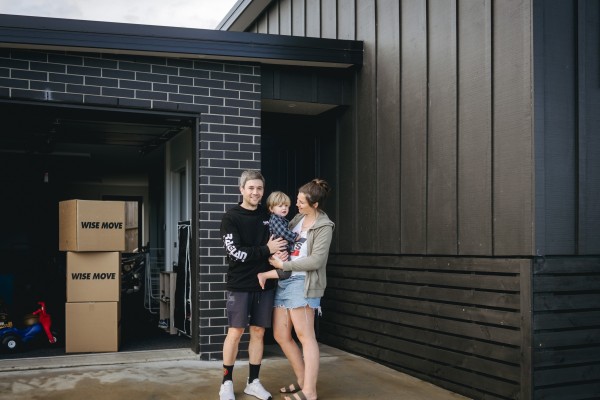
![What does it cost to build a new house in New Zealand? [2025] What does it cost to build a new house in New Zealand? [2025]](https://cdn.wisemove.co.nz/image/blog/ffd5dbdc5eec7e9eb3ad049d6c5c7f4d.jpeg)

